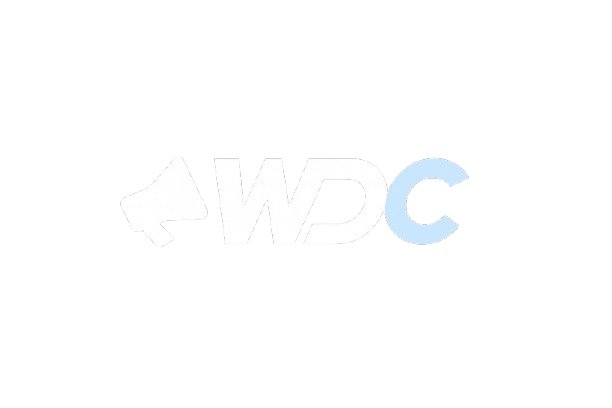The marketing landscape is constantly shifting, but 2026 might just be one of the most transformative years yet. With Google rolling out its Oracle Update, marketing agencies are about to experience a significant change in how campaigns are planned, optimized, and measured. This update is not just another tweak to search algorithms — it’s an evolution in AI-powered decision-making, designed to act as a trusted “oracle” that delivers highly accurate predictions and recommendations.
For agencies, this means faster insights, more precise targeting, and a data-driven approach that leaves little room for guesswork. In this article, WDC explores what Google’s Oracle Update is, how it works, and the ripple effects it will have across the marketing industry.
What is Google’s Oracle Update?
Google’s Oracle Update integrates an advanced AI “oracle” system into its marketing and analytics tools. In AI terms, an oracle is a trusted source of truth — a system that can provide the most accurate, reliable answer possible based on massive datasets and predictive models.
In practice, the Oracle Update leverages:
- Google Gemini AI for predictive analytics.
- Massive real-time data streams from search, ads, and content platforms.
- Advanced forecasting algorithms that can recommend optimal campaign actions before problems arise.
This means that instead of marketers reacting to campaign performance after the fact, they can now anticipate results and adjust strategies proactively.
Why Marketing Agencies Should Care
For years, marketing agencies have relied on analytics dashboards, A/B testing, and manual adjustments to fine-tune campaigns. The Oracle Update changes the game by:
- Delivering real-time, AI-verified recommendations.
- Predicting which audiences will convert and at what cost.
- Automatically adjusting ad placements, budgets, and creatives.
This shift can save agencies time, budget, and human resources, allowing them to focus on creative direction and strategic expansion.
Key Changes Marketing Agencies Will Experience
1. Smarter Targeting
Before the Oracle Update, audience targeting often involved trial and error. Now, the AI oracle can:
- Identify micro-segments within broader audiences.
- Predict which demographic will respond to which creative.
- Adjust targeting dynamically based on live engagement signals.
Example:
Instead of running three different ad sets for testing, the oracle might instantly recommend the single most effective one, reducing wasted impressions.
2. Faster Campaign Optimization
Campaign performance will no longer be a post-mortem analysis. With the Oracle Update:
- Ads can be optimized daily or even hourly.
- Budgets can be shifted to high-performing channels in real-time.
- Underperforming campaigns can be automatically paused.
Impact for Agencies: Faster client results and stronger ROI reporting.
3. Predictive Budgeting
The Oracle Update can forecast:
- Exact cost-per-lead over a campaign’s duration.
- The point of diminishing returns before it’s reached.
- The optimal spend level for each platform.
For agencies, this means better client trust — budgets are allocated based on predictive certainty, not just experience or intuition.
4. Enhanced Creative Testing
Previously, creative testing meant weeks of running variations. Now:
- The oracle can simulate how different creatives will perform before they go live.
- AI can recommend specific headlines, visuals, and CTAs based on historical patterns.
This allows agencies to launch winning creatives from day one.
5. Competitive Advantage
Agencies using the Oracle Update will:
- Spot trends before they peak.
- Detect competitor campaign movements.
- Leverage insights unavailable to less tech-forward competitors.
This technological advantage could mean the difference between leading the market or struggling to keep up.
Challenges & Risks for Agencies
While the Oracle Update brings undeniable benefits, there are also challenges:
- Over-reliance on AI: Agencies must avoid letting automation replace strategic thinking.
- Data Privacy Compliance: With deeper audience insights comes greater responsibility for data protection.
- Skill Upgrades: Teams will need training to interpret and act on AI recommendations effectively.
At WDC, we see these not as roadblocks, but as opportunities for agencies to evolve alongside technology.
How WDC Suggests Agencies Prepare
As a leading web development and marketing solutions provider, WDC recommends agencies:
- Invest in AI Training: Ensure teams understand predictive analytics and AI-assisted marketing workflows.
- Audit Data Pipelines: Make sure all campaign data is accurate, clean, and privacy-compliant.
- Blend AI Insights with Human Creativity: Let the oracle handle predictions, but keep creative storytelling human-driven.
- Adopt Agile Campaign Models: Move from monthly campaign reviews to continuous, real-time optimization.
The Future Outlook
The Oracle Update signals a broader shift in digital marketing — one where intuition meets AI certainty. As agencies embrace this blend of human creativity and machine precision, those that adapt quickly will enjoy:
- Lower acquisition costs.
- Higher conversion rates.
- Stronger, longer-lasting client relationships.
In 2026 and beyond, the winners in marketing will be those who combine AI’s predictive power with human strategic vision.
Conclusion
Google’s Oracle Update isn’t just a software change — it’s a paradigm shift. For marketing agencies, it means stepping into an era where every campaign decision can be backed by near-flawless predictions. While this brings efficiency, it also challenges agencies to rethink their roles, workflows, and value propositions.
At WDC, we believe the agencies that will thrive are those that embrace AI as a partner — not a replacement — and use it to elevate their creativity, efficiency, and client satisfaction.
FAQs
1. What is Google’s Oracle Update?
It’s an AI-driven enhancement to Google’s marketing tools that uses a predictive “oracle” system to deliver accurate, real-time campaign recommendations.
2. How will it impact marketing agencies?
Agencies will see faster optimizations, smarter targeting, better budgeting, and more accurate creative testing.
3. Will the Oracle Update replace human marketers?
No. While it automates data-driven decisions, human creativity, brand storytelling, and relationship management remain irreplaceable.
4. What skills will agencies need?
Agencies should focus on AI literacy, data analytics, agile campaign management, and integrating AI insights into creative strategies.
5. How can WDC help agencies adapt?
WDC offers AI integration consulting, campaign automation solutions, and training programs to help agencies harness the full power of the Oracle Update.

